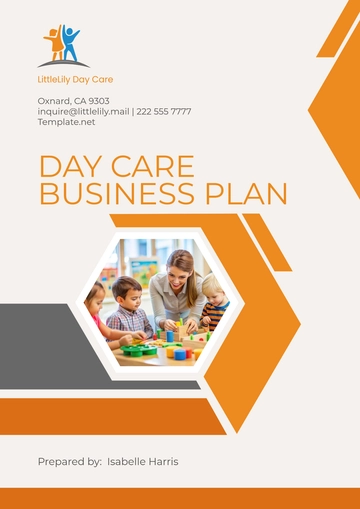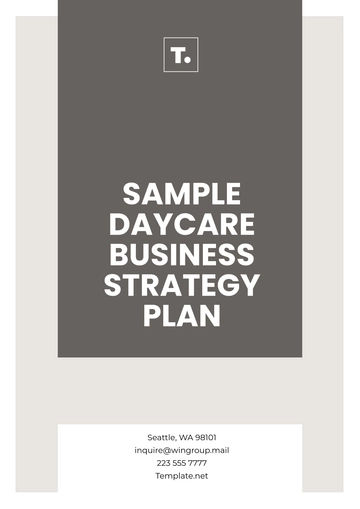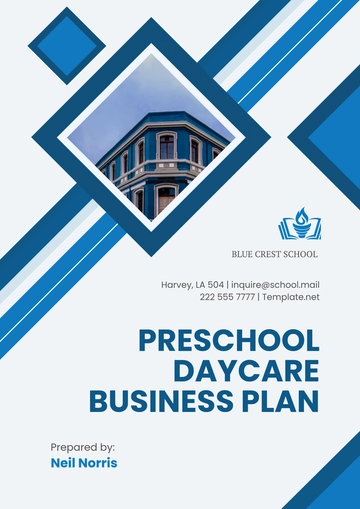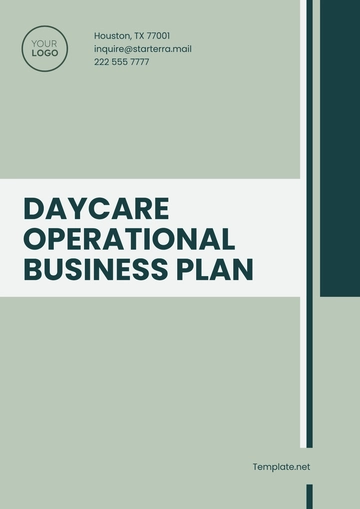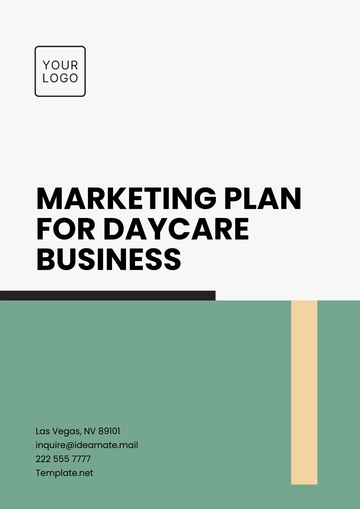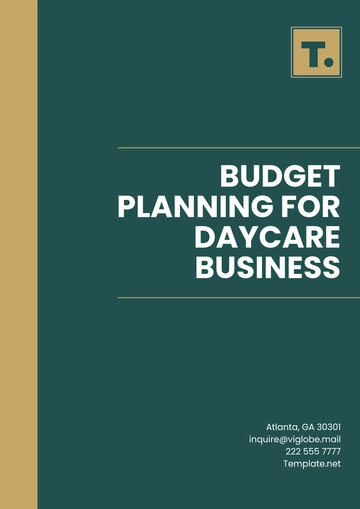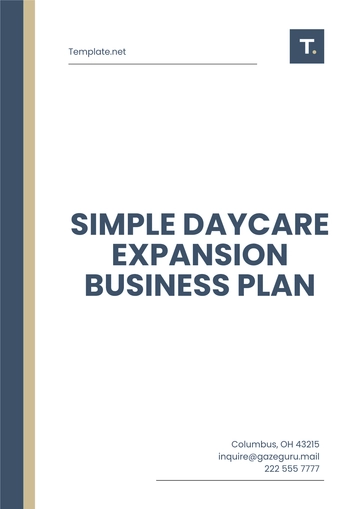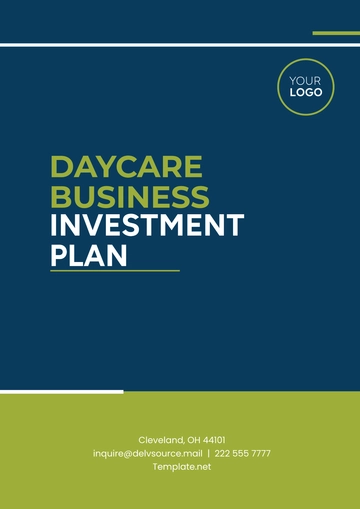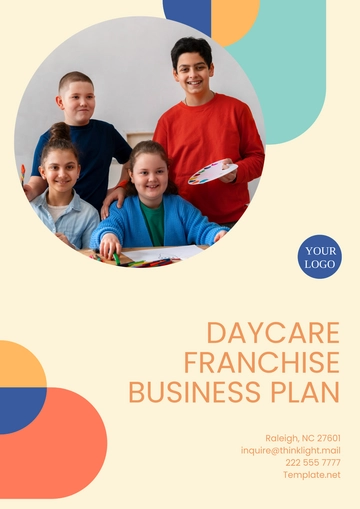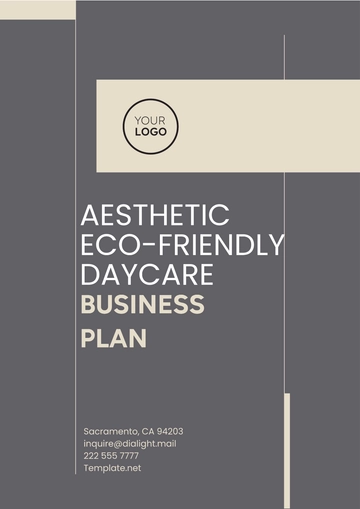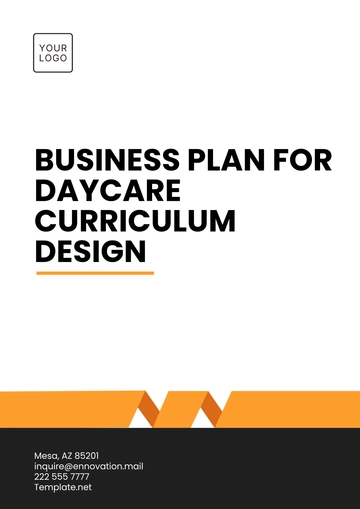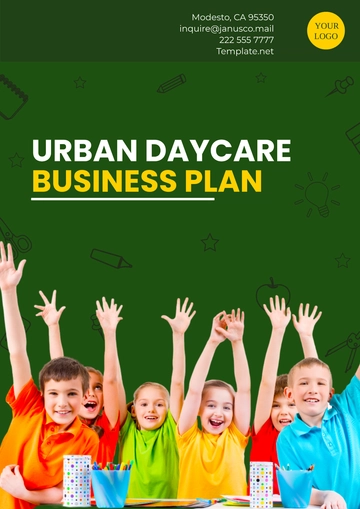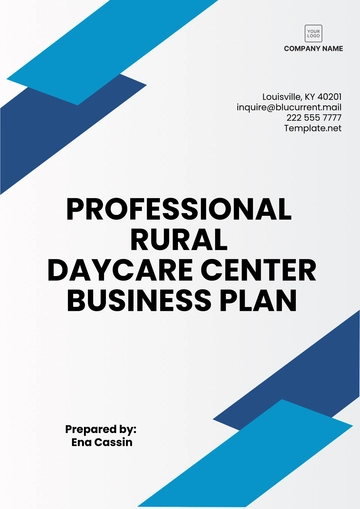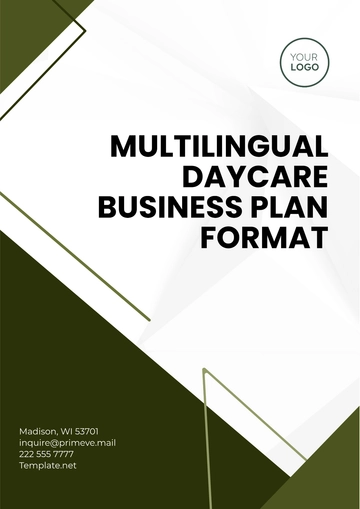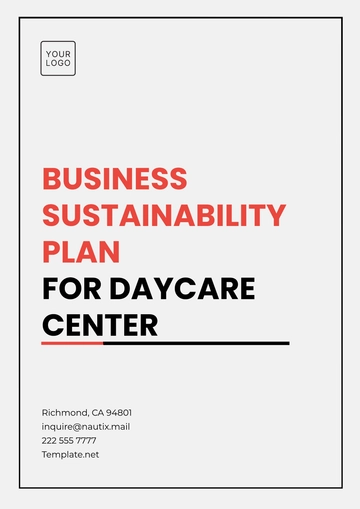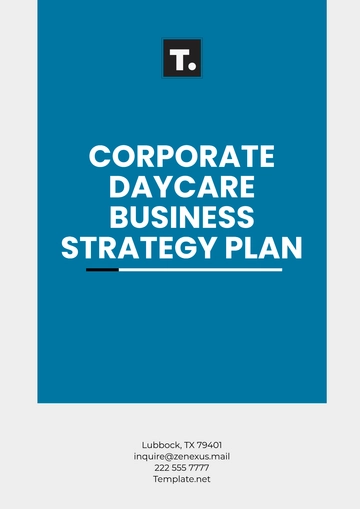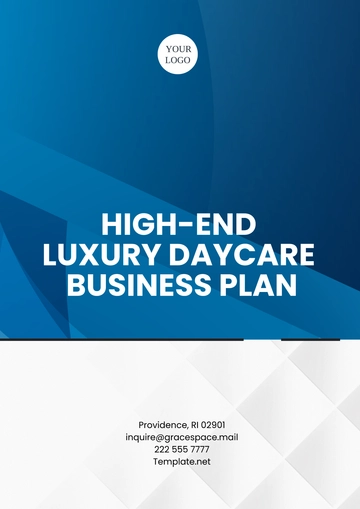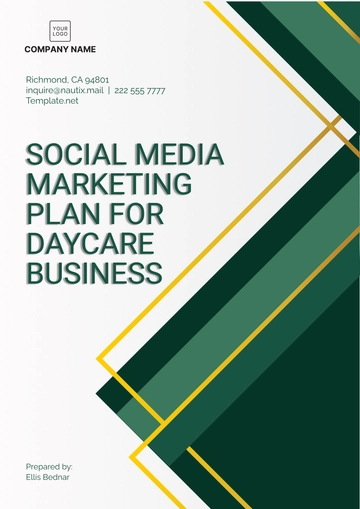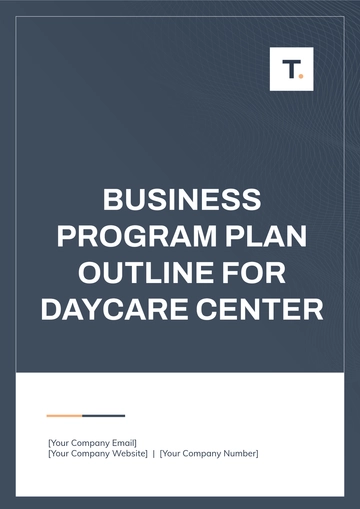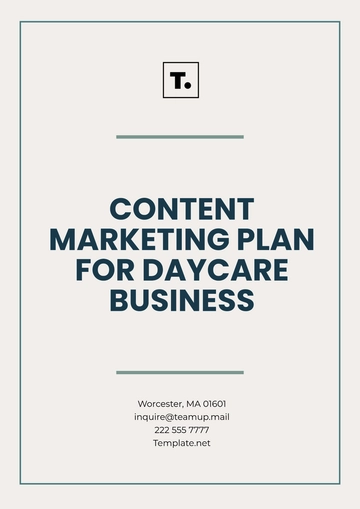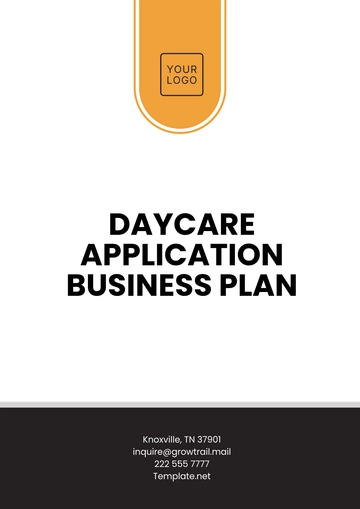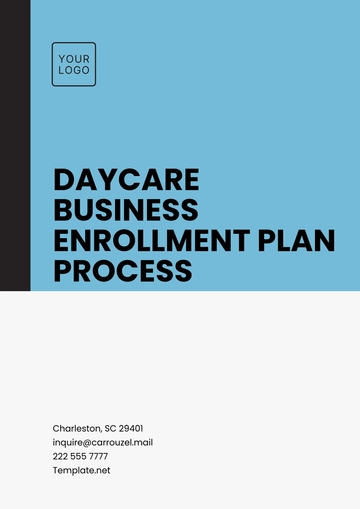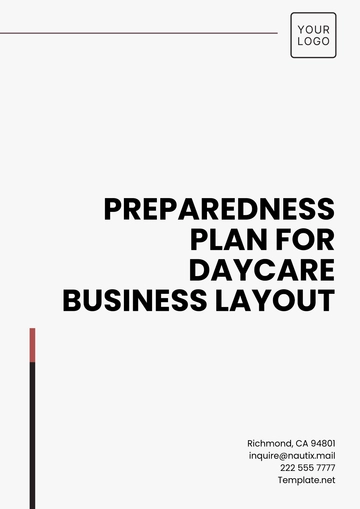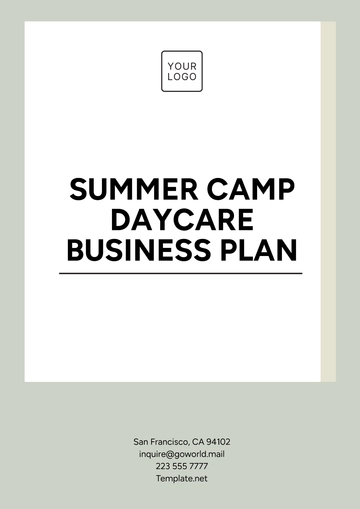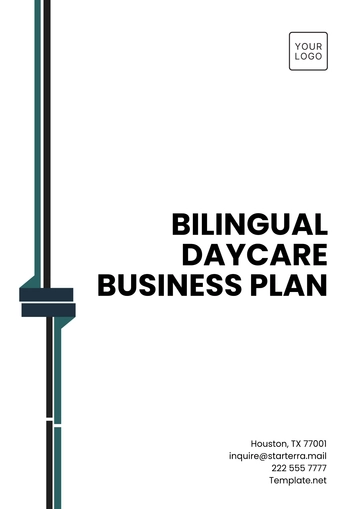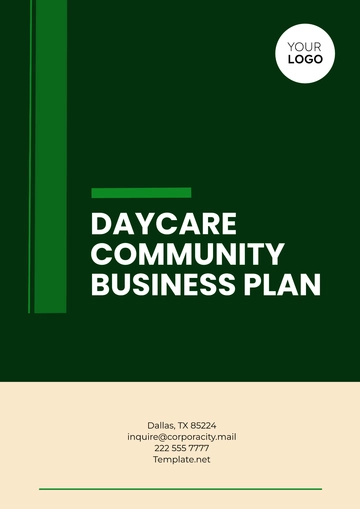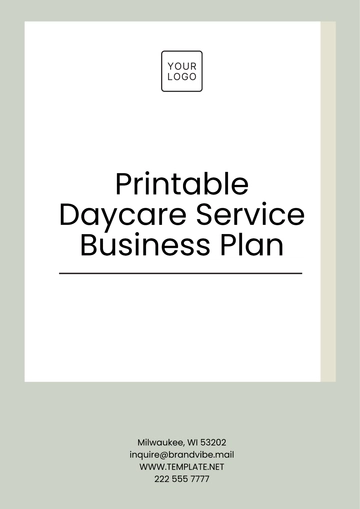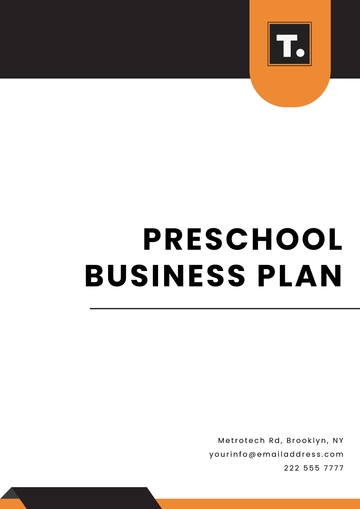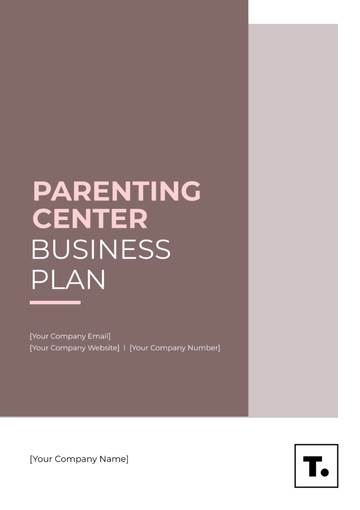Free Daycare Community Business Plan
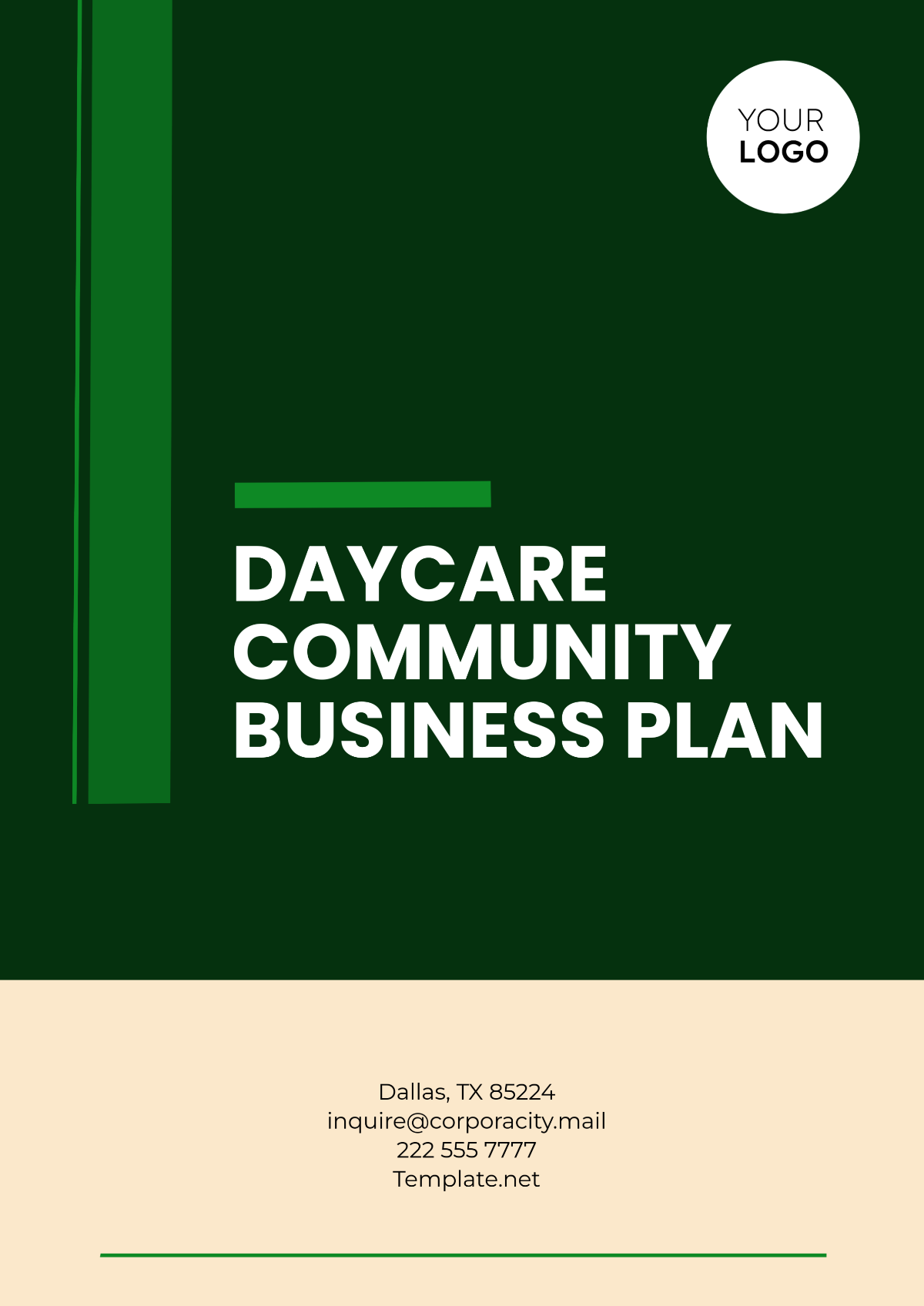
Prepared by:
[Your Name]
[Your Company Name]
Introduction
Starting a daycare business in a community provides essential services for working parents and offers opportunities for growth and development in an essential sector. A daycare facility plays a crucial role in supporting families by providing a safe, nurturing, and educational environment for children. This business plan outlines the vision, strategy, and operational framework for establishing a daycare center that caters to local families' needs while promoting early childhood development and offering flexible care options.
Executive Summary
[YOUR COMPANY NAME] aims to provide high-quality, affordable childcare services within the community. The daycare center will offer a range of programs designed for infants, toddlers, and preschool-aged children, including early education, socialization, and play-based learning. The business is committed to creating a welcoming, safe, and inclusive environment for both children and parents. Our center will focus on personalized care, community engagement, and providing peace of mind for working parents.
Key Highlights:
Business Name: [YOUR COMPANY NAME]
Location: [Your Company Address]
Services Offered: Full-time, part-time, and drop-in care for children aged 6 months to 5 years
Target Market: Families in the local community with young children
Revenue Model: Monthly subscriptions, drop-in rates, and annual packages
Vision: To become a trusted community daycare that nurtures children’s development through educational and fun activities.
Mission: To provide exceptional childcare in a safe, friendly, and enriching environment for children to grow, learn, and thrive.
Company Description
[YOUR COMPANY NAME] will be a licensed daycare center located in a family-friendly neighborhood, offering a comfortable and child-safe space designed to meet the needs of young children and their parents. The center will be equipped with age-appropriate learning materials, toys, and spaces for various activities that foster cognitive, emotional, and social development.
Core Values
Safety: The safety of children will always be our top priority, ensuring a secure environment with qualified staff.
Quality Care: Delivering personalized care tailored to each child's needs while promoting early learning.
Community Engagement: We will build lasting relationships with families and the local community, ensuring we are a resource families can rely on.
Market Analysis
The demand for daycare services in the local community is strong, driven by the increasing number of working parents who need reliable childcare options. According to national statistics, there is a rising demand for high-quality early education programs and safe childcare environments.
Target Market
Parents of Infants (6 months to 2 years old): Parents seeking safe, nurturing environments for their young children.
Toddlers (2 to 3 years old): Parents who want their toddlers to engage in social, cognitive, and creative activities.
Preschoolers (3 to 5 years old): Parents who are interested in early educational programs that prepare children for kindergarten and beyond.
Market Trends
Increased Demand for Early Education: Parents are placing more emphasis on educational childcare.
Flexible Care Options: Many families are seeking part-time or drop-in care to fit their busy schedules.
Health and Safety: Following the pandemic, families are prioritizing health and safety measures in daycare facilities.
Competitive Analysis
While there are several daycare options in the area, there is a gap in the market for a daycare center that provides a strong educational component in addition to traditional childcare. Most competitors focus primarily on childcare, without a clear emphasis on learning and development.
Services Offered
[YOUR COMPANY NAME] will provide comprehensive daycare services that focus on the growth and well-being of children. These services will include:
Infant Care (6 months – 2 years): Personalized care for infants, including nap times, feeding, and early sensory and motor development activities.
Toddler Care (2 – 3 years): Encouraging socialization, language development, and early learning activities through play.
Preschool Education (3 – 5 years): Structured educational programs designed to prepare children for kindergarten, focusing on literacy, math skills, and creative arts.
Additional Services
Flexible Hours: Full-time, part-time, and drop-in care options.
Enrichment Programs: Music, art, and outdoor activities to engage children in various forms of learning.
Parenting Workshops: Providing resources and workshops to support parents in child-rearing practices.
Operational Plan
Facility
The daycare center will occupy a rented space with ample room for classrooms, play areas, rest areas, and an outdoor play zone. The facility will be designed with safety in mind, featuring child-proof furniture, secure entrances, and appropriate staff-to-child ratios.
Staff
The daycare will employ a mix of trained childcare professionals, including:
Certified Teachers: Trained in early childhood education.
Caregivers: Experienced staff for daily childcare duties.
Support Staff: Responsible for administrative tasks and ensuring the smooth operation of the facility.
Hours of Operation
The center will operate from 7:00 AM to 6:00 PM, Monday through Friday, offering extended care for parents with non-traditional working hours.
Marketing Strategy
To effectively attract and retain customers, we will implement a robust marketing strategy that focuses on both digital and local community outreach.
Key Marketing Tactics:
Social Media Presence: Create engaging content on platforms like Facebook and Instagram, showcasing daily activities, educational programs, and events.
Community Partnerships: Collaborate with local businesses and organizations to promote services and host family-oriented events.
Referral Program: Offer discounts for families who refer new clients to the daycare.
Local Advertising: Utilize flyers, local magazines, and community boards to reach families in the area.
Financial Plan
Revenue Projections
Initial Year Revenue: $120,000 from full-time, part-time, and drop-in care.
Year 2 Revenue: $180,000 as the client base grows and additional programs are introduced.
Year 3 Revenue: $220,000 as we reach full capacity and expand services, including after-school care and weekend programs.
Start-up Costs
Facility setup and renovation: $25,000
Equipment and materials: $10,000
Licensing and permits: $5,000
Marketing and advertising: $7,500
Staff salaries: $40,000
Funding Requirements
To successfully launch the daycare, we are seeking an initial investment of $50,000, which will cover start-up costs and operational expenses for the first year. This will include the cost of renovations, purchasing furniture and educational supplies, staff recruitment, and marketing efforts.
Break-even Analysis
The daycare expects to reach its break-even point within 9 months of operation, with a steady increase in customer acquisition and retention. By year two, the business should begin to see significant profit due to a growing client base and expanded services.
Conclusion
[YOUR COMPANY NAME] is dedicated to providing an essential service for families in the community by offering high-quality childcare that prioritizes the well-being and development of children. With a strong market demand, a solid business plan, and a commitment to excellence, the daycare is poised to become a trusted resource for local families, contributing to the growth and nurturing of the next generation.
- 100% Customizable, free editor
- Access 1 Million+ Templates, photo’s & graphics
- Download or share as a template
- Click and replace photos, graphics, text, backgrounds
- Resize, crop, AI write & more
- Access advanced editor
The Daycare Community Business Plan Template from Template.net is fully editable and customizable to suit your daycare’s community-focused goals. With sections for services, outreach strategies, and financial planning, you can easily tailor the plan to your specific needs. Editable in our AI Editor Tool, it ensures a smooth and professional business planning process.
You may also like
- One Page Business Plan
- Coffee Shop Business Plan
- Restaurant Business Plan
- Food Business Plan
- Real Estate Business Plan
- Executive Summary Business Plan
- Cover Page Business Plan
- Nonprofit Business Plan
- Daycare Business Plan
- Construction Business Plan
- Startup Business Plan
- Medical Business Plan
- Bakery Business Plan
- Service Plan
- Hotel Business Plan
- Catering Business Plan
- School Business Plan
- Healthcare Business Plan
- Transportation Plan
- Sports Plan
- Car Wash Business Plan
- Salon Business Plan
- Clothing Business Plan
- Farming Business Plan
- Boutique Plan
